
Frontline maintenance tucatinib plus trastuzumab and pertuzumab increased progression-free survival in patient with HER2-positive metastatic breast cancer.
Caroline Seymour joined MJH Life Sciences in 2018 and has expertise in video production and print/digital publication. Email: cseymour@onclive.com

Frontline maintenance tucatinib plus trastuzumab and pertuzumab increased progression-free survival in patient with HER2-positive metastatic breast cancer.

Frontline lenvatinib, pembrolizumab, and chemotherapy did not lead to increased overall survival vs chemoimmunotherapy in patients with advanced ESCC.

Zidesamtinib, a brain-penetrant, TRK-sparing ROS1 TKI, showed activity and manageable safety in pretreated patients with advanced ROS1+ NSCLC.

Mosunetuzumab plus polatuzumab vedotin increased PFS and response rates vs R-GemOx in transplant-ineligible large B-cell lymphoma.
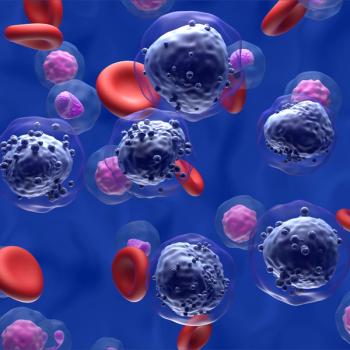
Luspatercept led to durable red blood cell transfusion independence and early OS signals in ESA-naive, lower-risk MDS, per updated COMMANDS data.

Camizestrant plus CDK4/6 inhibition improved PFS vs standard care in patients with ER+/HER2– advanced breast cancer and emergent ESR1 mutations.

Patients with ESR1-mutated, ER-positive, HER2-negative, advanced breast cancer experienced an increase in PFS with vepdegestrant compared with fulvestrant.

Durvalumab added to BCG induction and maintenance improved disease-free survival vs BCG alone in high-risk non–muscle-invasive bladder cancer.

The phase 3 INAVO120 trial showed that overall survival significantly improved with the addition of inavolisib to palbociclib and fulvestrant in PIK3CA-mutant, hormone receptor–positive, HER2-negative, endocrine-resistant advanced breast cancer.
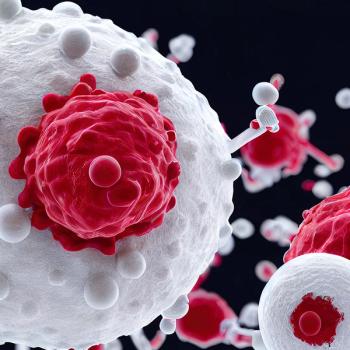
Axi-cel, tisa-cel, and brexu-cel were found comparable to other cellular therapy experiences for patients with B-cell malignancies in real-world data.

The FDA has granted PYX-201 fast track designation for treatment of recurrent or metastatic HNSCC after progression post-chemoimmunotherapy.

The combination of tislelizumab, irinotecan, paclitaxel, oxaliplatin, and 5-FU/leucovorin demonstrated promising efficacy and manageable safety in gastric and GEJ cancers.

Adjuvant cemiplimab demonstrated a statistically significant improvement in DFS compared to placebo in post-surgical patients with high-risk CSCC, impacting post-operative care considerations.

In patients with RRMM, subcutaneous isatuximab plus Pd resulted in a non-inferior objective response rate (ORR) and comparable pre-dose concentrations at steady state compared to IV isatuximab plus Pd.

Amivantamab and lazertinib improved overall survival compared to osimertinib as a first-line treatment for advanced or metastatic EGFR-mutant NSCLC.

New data from the ZUMA-2 trial of brexu-cel showed an ORR of 91% in patients with relapsed/refractory MCL who were naive to BTK inhibitors.

T-DXd improved PFS, vs treatment of physician’s choice, irrespective of time to progression or type of endocrine resistance among patients with hormone receptor-positive, HER2-low/-ultralow metastatic breast cancer.

The addition of tafasitamab to lenalidomide and rituximab reduced the risk for disease progression or death by 57% in patients with relapsed/refractory follicular lymphoma.

Real-world treatment with liso-cel showed a broad spectrum of outcomes that were comparable to those in the pivotal TRANSFORM and PILOT trials in patients with relapsed/refractory large B-cell lymphoma.

The phase 3 PANOVA-3 trial, designed to evaluate concomitant treatment with tumor treating fields and chemotherapy, met its primary end point of overall survival in unresectable, locally advanced pancreatic adenocarcinoma.

The FDA approved an updated drug label for fludarabine phosphate for the treatment of B-cell chronic lymphocytic leukemia.

The FDA approved a companion diagnostic for vorasidenib for patients with grade 2 astrocytoma or oligodendroglioma.
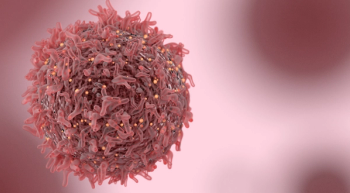
Guiding treatment via response predictive subtype could be beneficial for identifying patients with high-risk breast cancer who may respond to Dato-DXd plus durvalumab.
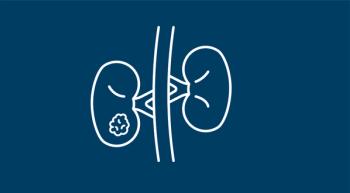
NKT2152, a novel HIF2a inhibitor, demonstrates significant efficacy in patients with advanced clear cell renal cell carcinoma.

The Food and Drug Administration approved ribociclib plus an aromatase inhibitor for hormone receptor (HR)–positive, HER2-negative stage II and III early breast cancer that has a high risk of recurrence.
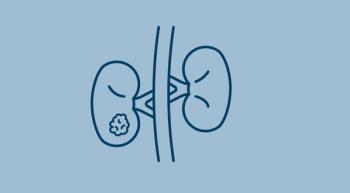
Belzutifan improved progression-free survival and objective response rate compared to everolimus in previously treated advanced renal cell carcinoma.

Neoadjuvant durvalumab plus chemotherapy, followed by adjuvant durvalumab, received approval from the FDA for select patients with resectable non–small cell lung cancer.

Men with metastatic hormone-sensitive prostate cancer treated with darolutamide plus ADT in the phase 3 ARANOTE trial had improved radiologic progression-free survival compared with placebo.

Findings from the RATIONALE-306 trial support treatment of tislelizumab plus chemotherapy for PD-L1-positive ESCC.

An sBLA was granted priority review from the FDA, which is seeking the approval of pembrolizumab plus chemotherapy for the frontline treatment of malignant pleural mesothelioma.

Published: September 2nd 2021 | Updated:
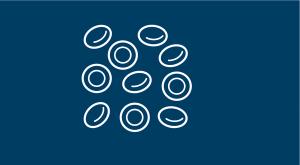
Published: March 17th 2022 | Updated:

Published: August 13th 2022 | Updated:

Published: July 12th 2021 | Updated:

Published: September 27th 2021 | Updated:

Published: February 28th 2021 | Updated: